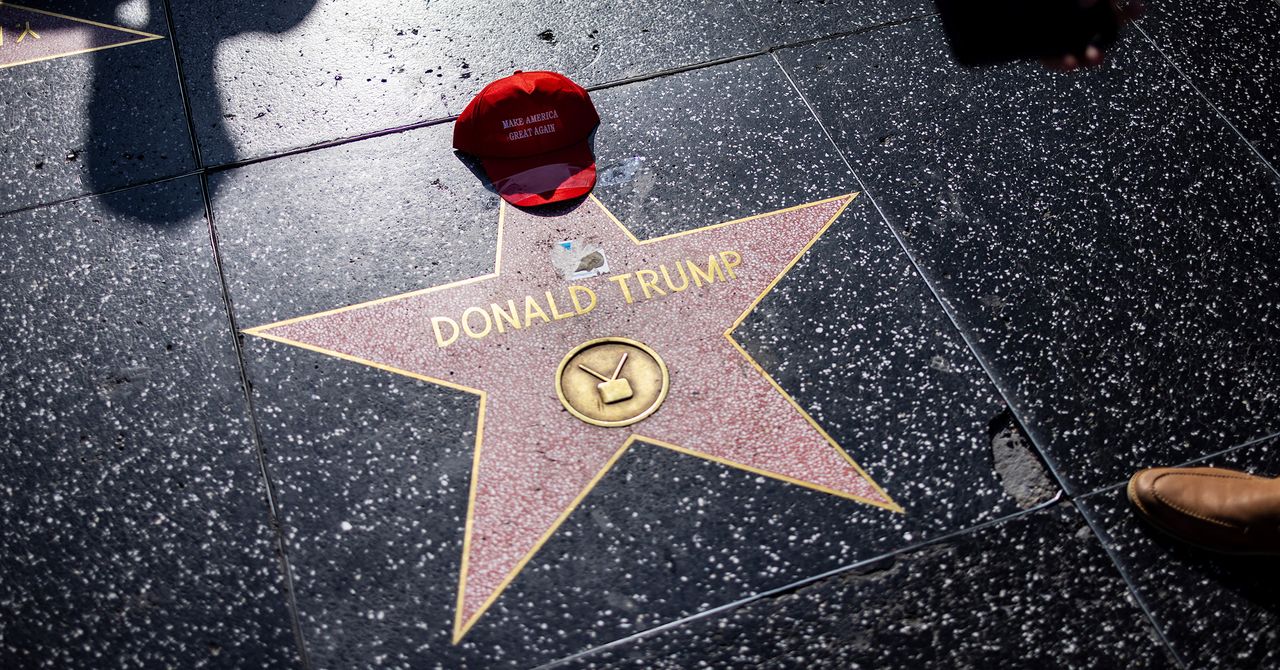As an business that makes films and TV exhibits—in commerce parlance: companies, not merchandise—Hollywood could have thought it was protected from President Donald Trump’s tariffs. Whereas the inventory market took main dips over the previous month, streaming gamers like Netflix appeared like wager.
On Sunday, that modified. Trump took to Reality Social to announce that the US film business was “DYING” and that he wished to deliver it again utilizing his favourite lever: tariffs. Particularly, a 100% tariff on films coming to the US that have been “produced in International Lands.”
By Monday, White Home spokesman Kush Desai was already pumping the brakes on the assertion, telling The Hollywood Reporter “no remaining choices” had been made on the tariffs. That didn’t cease the business from spiraling. Shares in Netflix, Disney, and different media properties began to slide, however the true uncertainty laid in a a lot totally different query: How the hell do you tariff films?
Tariffs, as Trump deploys them, are supposed to make importing so financially unappealing that firms make their merchandise within the US. Films, nevertheless, aren’t automobiles or iPhones. They don’t come over on ships and get taxed on the port. Would the tariffs apply to international movies acquired by US distributors? If a US studio makes a movie however shoots a handful of scenes abroad, does that depend? Would TV exhibits be included? Would new films shot overseas, just like the forthcoming Mission: Unattainable—The Closing Reckoning, discover themselves getting a hefty invoice if the tariffs went into impact down the road? Solutions haven’t been forthcoming.
And whereas tariffs are unlikely to have the impact Trump claims he needs, a federal tax credit score program for filmmakers—one thing California politicians spent years advocating for—might be a a lot stronger different. Although, as of this writing, it’s not one Trump has indicated he has an urge for food for.
Quite a lot of the confusion over Trump’s proposed tariff is a results of the labyrinthine methods fashionable films get made. For years Hollywood studios have filmed overseas in the hunt for tax incentives supplied in locations just like the UK, Canada, or Australia that basically subsidize the price of renting native services and hiring native crews in trade for bringing enterprise to these nations. Visible results and different elements of postproduction can get outsourced too. Bringing that work again to the US could be good for American filmmakers and their crews, however there’s no clear indication a tariff would do this. Extra doubtless, studios would simply make fewer movies, or—as shoppers have seen with tariffs on different items—the value of hitting the cineplex would go up.
In a Monday LinkedIn submit, cinema analyst David Hancock wrote that it’s “fairly arduous to see what the US authorities can really tariff.” Often, movies are digital recordsdata, and the rights to them are sometimes break up between creators, financiers, and different entities. “Both the US authorities has to ban US producers from working overseas, which might considerably cut back the variety of films being made and drastically weaken their movie business,” Hancock wrote, “or they must create a federal tax credit score scheme” to assist US studios keep their output with out seeing their prices skyrocket.



